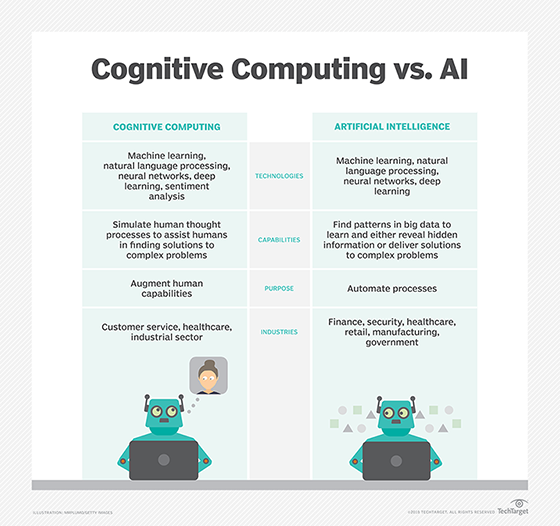Types of artificial intelligence
Arend Hintze, an assistant professor of integrative biology and computer science and engineering at Michigan State University, categorizes AI into four types, from the kind of AI systems that exist today to sentient systems, which do not yet exist. His categories are as follows:- Type 1: Reactive machines. An example is Deep Blue, the IBM chess program that beat Garry Kasparov in the 1990s. Deep Blue can identify pieces on the chess board and make predictions, but it has no memory and cannot use past experiences to inform future ones. It analyzes possible moves --
its own andits opponent -- and chooses the most strategic move. Deep Blue and Google's AlphaGOwere designed for narrow purposes and cannot easily be applied to another situation. - Type 2: Limited memory. These AI systems can use past experiences to inform future decisions. Some of the decision-making functions in self-driving carsare designed this way. Observations inform actions happening in the not-so-distant future, such as a car changing lanes. These observations are not stored permanently.
- Type 3: Theory of mind. This psychology term refers to the understanding that others have their own beliefs, desires
and intentions that impact the decisions they make. This kind of AI does not yet exist. - Type 4: Self-awareness. In this category, AI systems have a sense of self, have consciousness. Machines with self-awareness understand their current state and can use the information to infer what others are feeling. This type of AI does not yet exist
.

Today, businesses of all types need to know how to implement artificial intelligence (AI), as the technology has changed the way organizations do business across the world, and will continue changing it into the foreseeable future. Those businesses that don’t capitalise on the transformative power of AI risk being left behind. So our company should start investing in artificial intelligence technology, to cope up with the other leading industries in this technology.
Mastering AI and data is one of the most important things that our company can do to transform ourselves into exponential enterprises, achieve exponential growth, and avoid disruption. The companies leading the way in AI also lead the way in breakthrough results in this time of disruption and accelerating change. By taking a focused approach to building a world-class AI capability, our company can join the ranks of the exponential leaders as well in next 3-5 years. In near future smarter technologies/devices produced in our company and connected machines that will interact, visualize the entire production chain and make decisions autonomously will revolutionize the advancements in our business. And it will improve the quality of life for the world’s population and raise income levels.
1.
Link: http://www.okapi.ai/lagging-behind-the-risks-of-not-using-ai-in-manufacturing-and-the-advantages-of-using-it/
2.
https://medium.com/@ryankhurana/the-benefits-of-artificial-intelligence-outweigh-the-risks-e7e7fd5c11ea
3.
https://codebots.com/ai-powered-bots/6-technologies-behind-ai
4.
https://venturebeat.com/2019/06/15/amazon-sends-alexa-developers-on-quest-for-holy-grail-of-voice-science/
5.
https://towardsdatascience.com/the-15-most-important-ai-companies-in-the-world-79567c594a11
6.
https://ankura.com/insights/regulatory-compliance-in-the-age-of-artificial-intelligence/
7.
https://www.stradigi.ai/blog/the-key-legal-issues-in-ai/
8.
https://www.centralbanking.com/regulation/3509606/artificial-intelligence-the-future-of-regulation
9.
https://towardsdatascience.com/security-and-privacy-considerations-in-artificial-intelligence-machine-learning-part-4-the-d02a2fa3f665
10.
https://medium.com/@sa_mous/ethics-in-ai-424919af7d3
No comments:
Post a Comment